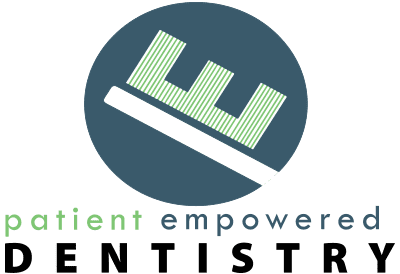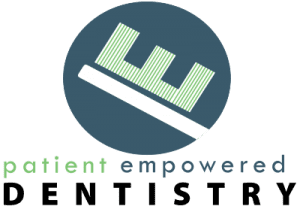How to Improve Oral Health for Pregnant Women
Good oral care is important for everyone at every stage of their lives. And, as you go through life, your oral health needs will change. One such period in life where there is a noticeable change to oral health needs is when a woman is pregnant.
As pregnancies progress, women’s bodies will change. There are many new and sometimes uncomfortable issues that you will face throughout pregnancy. These will include morning sickness, swollen feet, a sudden dislike of foods that you have previously enjoyed, and a craving for often strange combinations of food that you may have disliked in the past. But, along with all of the well-documented changes that occur during a woman’s pregnancy, one that is not discussed as much are the changes in oral health and dental needs.

It is important, however, that during your pregnancy these changes in your oral health needs and not overlooked. Should these dental concerns be dismissed without the correct care and attention, there is a chance that it could cause later problems for both you, and your baby.
Gum Disease And Bleeding Gums
As your hormone levels change during pregnancy, your body will respond in a different way to plaque bacteria on your teeth. A build up of plaque will cause bleeding gums.. There are also forms of gum disease that are closely associated with pregnant women including periodontitis and pregnancy gingivitis. Gingivitis often reaches its peak during the third trimester of pregnancy. If an expectant mother has previously suffered from gingivitis, this is likely to be considerably exacerbated during their pregnancy.
There are links between gum disease and problems with a pregnancy. Pre-eclampsia, babies being born underweight, and premature births are all things that can be associated with oral health concerns during the pregnancy.
Paying attention to the signs of gum disease is therefore very important to any expectant mother. This means being more aware of any discomfort in the gums, watching out for any bleeding from the gum area, and maintaining a pro-active approach to dental hygiene.
Prevention of Gum Disease
Although it is very important that you are mindful of any issues relating to your gums during your pregnancy, it is even more essential that you take a pro-active approach to take care of your teeth and gums in order to prevent these major gum concerns impacting negatively on your health, or that of your baby.
It is therefore essential to apply the logic that prevention is always better than the cure. Ensuring you do not put your unborn babies’ health in any risk should be of paramount concern.
This means that during your pregnancy, in particular, you should do your very best to take good care of your teeth and gums. An oral health routine should always include brushing your teeth for two minutes in the morning and the night. Using fluoride toothpaste is recommended by dentists. However, due to the wider health implications relating to oral health problems in pregnancy, interdental brushing, flossing, and using mouth wash are all ways that you can increase your level of oral hygiene.
Getting a regular check-up with your dentist is also important. Your dentist will be acutely aware of the issues affecting you and will be especially vigilant for the early signs of problems, meaning these can be addressed early.
Your Diet During Pregnancy And How It Affects Your Oral Health
During your pregnancy, one of the easiest changes that you can make in your oral health care is through your diet. Maintaining a diet that is as low as possible is sugar will be very beneficial. Sugar clings to your teeth and contributes to the build up of plaque bacteria on your teeth and gums. This ultimately will lead to tooth decay and gum disease. By minimizing your exposure to sugar, you will be greatly reducing the risk of developing serious gum issues such as pregnancy gingivitis and periodontitis.
Switch to fresh fruit and vegetables within your diet in order to maintain the best oral health, This will also have many great health benefits for you and your baby too.
Treatment For Gum Disease
If you do have gum disease, or any of the symptoms that are associated with this, including bleeding or uncomfortable gums, you should seek the advice of your dentist. Treatment for gum disease during pregnancy is safe. Treatments will involve a full and thorough deep clean under your gums which will remove any bacteria.
The only side-effect that you are likely to experience from such a treatment is soreness around the gums. However, this is true of anyone who has this type of treatment regardless of if they are pregnant or not.
X-rays And Anaesthetics
You should pay a visit to your dentist during your pregnancy regardless of if you have symptoms or not. A check-up is vital for ensuring you maintain good oral health overall. However, when you do visit your dentist, be sure to let them know that you are pregnant.
Dentists will often take x-rays of your teeth, and, due to the risk from the radiation of having x-rays taken during pregnancy, your dentist will need to know so that they do not take these.
Anesthetics to numb your teeth during treatments may be a problem during pregnancy, it is important that your dentist knows about your pregnancy so that they can ensure that any treatments that are carried out, are done so in a safe way.
Painkillers
Gum disease can be painful, it is not uncommon for people to need to take paracetamol or other common painkillers. Occasionally, antibiotics may be needed. It is generally safe to take these, however, you should always consult with your doctor before taking any new medication during pregnancy.
Taking good care of your oral health is vital during the entirety of your pregnancy. A pro-active approach should be taken to ensure your oral hygiene levels and your diet is improved in order to prevent later complications in your pregnancy.


